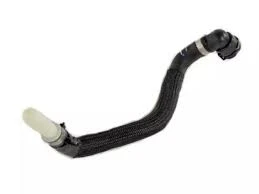Fuel Transfer Hose Solutions for Efficient and Safe Fuel Movement in Various Applications
Nov . 06, 2024 12:24 Back to list
Fuel Transfer Hose Solutions for Efficient and Safe Fuel Movement in Various Applications
The Importance of Fuel Transfer Hoses in Modern Fuel Systems
In the modern world, the demand for efficient and safe fuel transfer systems has never been greater. Whether for commercial or industrial use, the seamless transfer of fuel is a critical component in ensuring that machines, vehicles, and power systems operate effectively. At the heart of these systems are fuel transfer hoses, which play a vital role in the pumping and transportation of fuels, lubricants, and other fluids.
Fuel transfer hoses are specially designed to handle a range of fuels, including gasoline, diesel, and biofuels. These hoses are constructed from durable materials that can withstand the harsh conditions and pressures often encountered in fuel transfer operations. The materials used in manufacturing fuel transfer hoses include rubber, PVC, and various composite materials, each chosen for their unique properties such as flexibility, resistance to abrasion, and the ability to maintain integrity in extreme temperatures.
One of the most significant advantages of fuel transfer hoses is their ability to prevent leaks and maintain safety. The risk of fuel leaks can lead to hazardous conditions, including fire risk and environmental contamination. High-quality fuel transfer hoses are equipped with features like reinforced layers and leak-proof fittings, which help to mitigate these risks. Additionally, many hoses are designed to be anti-static to prevent the buildup of static electricity during fuel transfer, further enhancing safety.
fuel transfer hose

Maintenance and regular inspection of fuel transfer hoses are essential in prolonging their lifespan and ensuring safe operation. Over time, hoses can suffer from wear and tear due to exposure to fuels, pressure, and environmental conditions. Regular checks for signs of damage such as cracks, bulges, or leaks can help identify potential issues before they lead to catastrophic failures. It's crucial for operators to adhere to the manufacturer's guidelines for hose usage and maintenance to prevent incidents and ensure the efficiency of fuel transfer operations.
Another important aspect of fuel transfer hoses is their compatibility with various types of fuels. As the energy landscape evolves and more alternative fuels enter the market, the need for hoses that can handle these new substances has become apparent. Fuel transfer hose manufacturers are innovating to create products that can accommodate a variety of fuels, including ethanol blends, biodiesel, and even hydrogen, preparing the industry for a more sustainable future.
Moreover, the design and engineering of fuel transfer hoses also play a significant role in their performance. Recent advancements have led to the development of hoses with greater flexibility and durability, allowing for easier handling and installation. Special designs, such as lightweight construction and smaller diameters, make them suitable for more compact applications, including in commercial vehicles and small machinery.
In conclusion, fuel transfer hoses are an indispensable component of contemporary fuel systems. Their ability to safely and efficiently transport fuel not only ensures the smooth operation of machinery and vehicles but also plays a critical role in environmental protection. With ongoing innovations and a growing focus on safety and adaptability, fuel transfer hoses are set to evolve alongside the changing landscape of the energy industry, ensuring that they continue to support the demands of modern fuel systems in a safe and sustainable manner. As we move towards a more energy-conscious future, the importance of reliable and efficient fuel transfer solutions will remain at the forefront of operational excellence.
